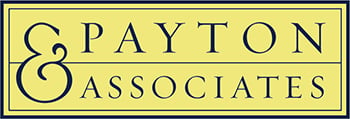Payton & Associates represented an international client in a complex dispute in federal court. Mexico City invited our client to develop a mobile taxi-hailing application for the 140,000 taxicabs licensed to operate in that city. Our client was introduced to a company that claimed to have such a program in operation in Ecuador. Our client and the representative of the Ecuadorian company discussed forming a joint venture, but nothing was ever reduced to writing.
After learning of misrepresentations by the taxi company’s representative, our client withdrew from the joint venture discussions. In order to avoid litigation, our client offered the taxi company 25 percent of the fruits of his labors under the banner of a new company. Mexico City approved the project and entered into a 10-year contract with our client.
The Basic Facts of the Case
Almost immediately, the taxi company filed suit against our client for all manner of wrongs. Three years after our client withdrew from the joint venture discussions, an investment banking company evaluated the new company holding the contract with Mexico City and valued it at $2.4 billion. The Ecuadorian company, as plaintiff, claimed it was entitled to 60 percent of the new company based on an alleged agreement with our client during their joint venture negotiations.
The case was tried to an advisory jury. The jury awarded the software company $300 million.
Our Client’s Motion for Judgment as a Matter of Law
Since there was no written contract, the plaintiff claimed it had provided business and technical know how to our client that resulted in our client contracting with Mexico City. The plaintiff claimed our client was unjustly enriched. The plaintiff brought no expert witness to testify and presented no evidence of the value of the services it rendered to our client or the value to our client of the information allegedly transferred to him.
We argued that under an unjust enrichment claim damages must be based on something that can be measured and is quantifiable. The jury cannot speculate as to the value of the benefit bestowed upon the recipient. There must be some yardstick by which the jury can assess the damages. In our case, the $2.4 billion valuation was arrived at three years after the event giving rise to the claim, that is our client’s withdrawal from further negotiations toward a joint venture.
We argued that it was error for the jury to use a valuation performed three years after the breakup to award damages. The court agreed with our argument and entered judgment against the plaintiff and in favor of our client, the defendant, on the plaintiff’s claim of unjust enrichment. The court also entered judgment in favor of our client on its counterclaim of negligent misrepresentation. The jury’s verdict was set aside.

